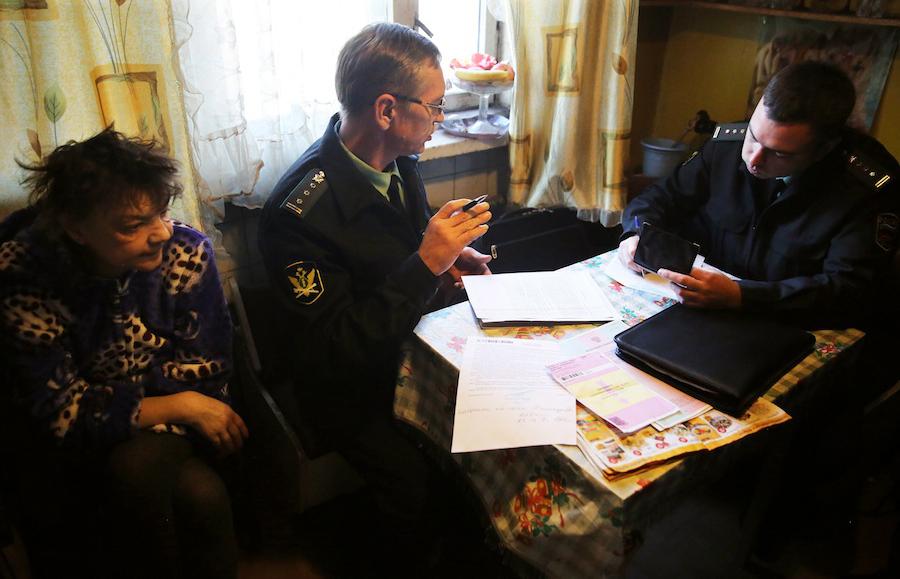After the parents divorce, the child remains entitled to receive assistance from the second parent with whom he no longer lives. Other family members are entitled to count on her. What does malicious evasion of alimony mean and what are its consequences?
What is child support?
The law obliges money to help members of their families who need it. First of all, we are talking about children and parents. There is almost no need to talk about the second category because of a number of provisions of the law.

Alimony is a regular payment in the amount and for the period prescribed by law.
They are made on the basis of a court decision, sometimes it is possible to agree and an agreement signed by a notary is signed, or the second parent sends payments to the ex-spouse on an implicit basis without any formalities. Few agree, and more often everything is decided through the courts. Therefore, "What does malicious evasion of alimony mean?" - a question that many mothers are asked.
Legal regulation of liability
All issues with alimony are regulated by the UK. Responsibility for violation of obligations arises according to the Code of Administrative Offenses and Criminal Code. The last two codes also define what it means to maliciously evade child support.
Not so long ago, until 2017, when amendments to the law came into force, it was more difficult to solve issues with the responsibility for refusing or evading paying child support. Legislation was not well defined. Excessively much was left to the discretion of law enforcement agencies, cases were rarely opened, and few of them reached the court.
Terminology Issues
What does malicious evasion of alimony mean? Today’s legislation does not apply this wording. It was previously available and is associated with the previously existing PP of the Armed Forces of the RSFSR on crimes of non-payment of alimony.

It was canceled back in the 1990s. Nevertheless, the judges continued to refer to him as a source of criteria for determining malice. A similar opinion was once held by the Prosecutor's Office in a review of the practice of holding citizens accountable for failure to fulfill the obligation to pay child support for practical purposes.
When does the problem arise?
If a person has official income, then the employer or organization making payments transfers a part of the funds to the FSSP deposit, and they already transfer them to the recipients. And, if there is a delay, then the fault is not the payer, but the organization, the bank or the bailiffs.

The current economic situation and the habit of people working without formalizing their income makes the recovery process problematic. Some specifically hide their income or go into the shadows in order to save themselves from the need to pay child support.
Difficulties are caused by collecting from individual entrepreneurs who do not have accounts with credit organizations and cannot influence their cash flows in any way. After examining the documents from the tax service, the bailiff will determine the amount of income, but he still does not have the opportunity to take their share of the opportunity.
Responsibility system
In Russian law over the past few years there has been a tendency to build a liability system as follows:
- a citizen is brought to administrative responsibility;
- criminal liability arises if the act is repeated during the period of administrative punishment.
At the same time, it is not so easy to prove the violation, as the alimony example proves.For malicious evasion of alimony, the consequences occur if there are serious reasons.
What do citizens forget about?
As noted above, the first step in holding liable for failure to pay child support is to bring to administrative responsibility.

It would seem that it is easier to write a statement to the bailiff, he will draw up a protocol, attach materials from the enforcement proceedings to him, and the documents will be transferred to the justice of the peace, and he will make a decision. In fact, not everything is so simple, the bailiff needs to prove that there really was a deviation, otherwise the judge will justify the defaulter.
And how is the article of the Criminal Code on malicious evasion of alimony formulated? What is the evidence of violations by the obligated person?
Legal elements of liability
The first element of the base of prosecution is the existence of enforcement proceedings on the basis of a court decision or an order to recover child support and (or) a notarial agreement between the parties.
If there is neither one nor the other, there can be no talk of responsibility, even if there is a court decision on hand, but no measures have been taken to enforce it.
The obligation to pay child support arises in two cases:
- the child has not reached 18 years old or continues to study until 23 years old in full-time university;
- parents have reached retirement age and need additional help or acquired disability status before they reach 55 and 60 years of age, respectively.
A disability clause also applies to children who have already reached the age of majority.
There are situations when a person does not pay child support due to adverse circumstances, and not because of his own intent.
Criteria for the presence of intentional actions
When it is worth considering what is fraught with malicious evasion of paying alimony?
The FSSP has developed recommendations for interrogators and bailiffs that describe the criteria or guidelines:
- the guilty person seeks to conceal the available income, which is especially noticeable in the case of entrepreneurs;
- there is a desire to hide property (refusal to register ownership, fictitious donation, purchase and sale transactions are carried out, etc.);
- regular change of residence without notice to the bailiff;
- change of personal data, change of documents without informing the bailiff;
- change of work without warning the bailiff and the recipient of alimony;
- the property documents submitted contain false, distorted and incomplete information;
- lack of response to the use of administrative sanctions by the bailiff
Naturally, all points are evaluative in nature, and each situation should be studied in detail.
As an example: the bailiffs cite a refusal to be placed in an employment center to find vacancies. If a person is listed on the exchange, the refusal of the offered vacancies without serious reasons, the failure to appear on the exchange at the call of the inspector, are taken into account.

A competent bailiff and interrogator will be able to make you think about the risk of evading child support.
A person who behaves in good faith, comes to challenges, takes measures to find work, having an irregular income, continues to make payments, protects himself from claims from the state. His manner of action differs significantly from the behavior of a person evading his duties.
Bailiff
It remains for him to record the actions of the debtor in the reports, in the warnings sent at the place of residence or registration, as well as to collect documents that indicate evasion of payment.
Having collected enough material, it will have grounds for bringing to administrative responsibility. It should be noted that at least 2 months must pass from the moment the enforcement proceedings are opened in accordance with the norms of the Code of Administrative Offenses.

As a rule, the collection of a sufficient amount of evidence objectively takes more time.In this case, the bailiff must send a copy of the decision to open the proceedings and a warning to the address of residence in a letter with a notification. If there is no evidence of their direction, then drawing up a protocol will be illegal, and the judge will even refuse to consider the merits.
Malicious evasion of child support - how much, if applied to start CAO?
- compulsory work up to 150 hours;
- arrest from 10 to 15 days;
- a fine of 20 thousand rubles if other penalties cannot be applied.
The value of the judge
A judicial act of a magistrate's court is significant under one condition - if the person involved does not appeal and does not achieve its cancellation. Some cases reach the Armed Forces of the Russian Federation, and before opening a criminal case, they await the decision of the highest court. Otherwise, the interrogator will be forced to close the case.
Criminal liability
In the case of malicious evasion of alimony, the timing of the involvement is tied to the Code of Administrative Offenses. Why? The Criminal Code states that prosecution is permitted if the subject is considered punished during the period of the violation. The 12-month period of prosecution is counted from the day the court order was executed (the arrest was served, the fine was paid, etc.), and not from the day the court decision was made.

Now let's turn to article 157 - "Malicious evasion of alimony." The penalty is not provided here. The punishment palette is as follows:
- correctional or forced labor up to 12 months;
- arrest up to 3 months;
- imprisonment of up to 12 months.
The investigation is conducted in the form of an inquiry by the FSSP staff (the service provides for a full-time unit of an inquiry officer). A criminal case is opened:
- interrogations are conducted;
- documentary materials are collected;
- the investigation is conducted under the close supervision of the prosecutor, a significant part of the investigation is carried out exclusively with his consent;
- the completed case is referred to the prosecutor.
If everything is in order with the case, it is sent from the prosecutor to the court. The trial usually ends with a guilty verdict.
If the reason is sluggishness of a person, his carelessness, and he has other family members, the punishment is assigned in the form of work. Otherwise, they are sentenced to a year of imprisonment. Interestingly, judges denied parole to such convicts. And this is with the ease of the article in comparison with other violations.
Finally
Responsibility for tax evasion is provided in two versions: administrative and criminal.
The second form of liability is subject to the availability of administrative punishment.
Attraction affects only unscrupulous payers, which excludes formality in resolving such cases.
